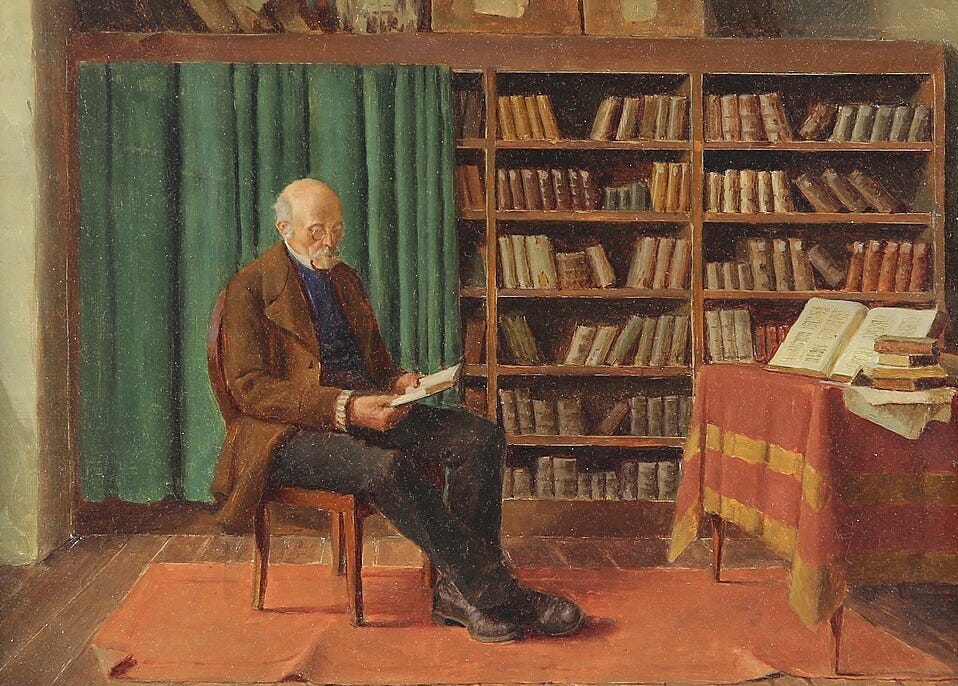When you set out to read a series for the first time, my recommendation is read in publication order.
Always.
Even if the author recommends another order.
It is not always an aesthetic improvement over any other order, but it's impossible to know that without reading them through. I've never known a series to improve by a different order, and you never have a second chance to read them through the first time.
The thing is that that as the writer writes along, he makes decisions that define the world. Even if he spent decades world-building before knuckling down to creating stories, the stories will influence the world.
This applies with special force for series with continuing characters.
If John Doe and Richard Roe are taking on the world in volume 2, and you go back to read volume one, where John Doe, Richard Roe, and James Poe are taking on the world -- well, volume one was not written with an eye to the reader wondering what will befall James Poe to keep him out of volume 2. It was written with the death/imprisonment/whatever of James Poe being a plot twist, or a dramatic point.
Furthermore, what John Doe and Richard Roe were doing in volume two will give many clues to the reader, and volume one was not written to be read in light of those clues. If they are trying to raise a ransom, or find a wizard to disenchant a statue, the reader can see the twist coming. If they make no mention of James Poe, the reader can see that the fate is final.
Things that are mysteries in the earlier stories turn into dramatic irony in the later ones. For instance, a magical sword made by the villain is an aid to the heroes. They can wonder about it. Later, in a prequel, it is revealed that the villain made it able to cope with different foes according to its use. In the next book, we can appreciate the dramatic irony of how the heroes don't realize that. (Though some writers foolishly let the heroes know just because the readers do. Avoid that.)
The thing is that, although a writer can make something work as either dramatic irony or mystery, it generally works better one way. No matter how much the writer reminds himself, or his beta reader remind him, he can't really work himself back into the frame of mind that doesn't know what he knows. (Re-reading produces a different effect, of course, which is why the first time is important.)
This goes with double force for prequels. We already know how it will turn out, if we've read the prior books. A prequel can not be written both for people who know and for people who don't. And since the writer is one of those who knows, it's very hard for him to write a prequel for those who don't.
If the main timeline series saw John Doe and Richard Roe taking on the world, and mentioned James Poe, that means the prequel volume, featuring James Poe, is written with an eye to the reader wondering what will befall James Poe to keep him out of volume 1 and the rest, and those to whom the death/imprisonment/whatever of James Poe comes as a shock are not getting the intended effect.
This is mitigated the further back in time, farther away in distance, and more distant the connection between the characters. Still, it matters.
I once read a book, and then another set in the same setting -- thousands of miles away and centuries earlier. Still, given the clues given in the first book, I knew that the hero of the second book would go much further than the book bore him. That, in fact, he was bound on a path that would affect things, with visible and overt effects in other stories, for centuries and possibly millennia to come.
It was still a tale of adventure without it, and at that, I wax philosophical.
A work of art requires that it contain no unnecessary parts, and that its parts fit together so you can't switch them around at random. Is it better aesthetically that a series have a more artistically perfect reading order?
That's a question for the ages, for philosophy of art.
Meanwhile, it's wiser to read series in publication order.



This is true for everything except Discworld
The 2011 Thing is one of the only prequels I've ever seen that actually makes the original feel like a sequel. Probably because the whole movie is a reference to just a single scene in the 1982 Thing.
But otherwise, I totally agree. I don't understand why the viewing order for Star Wars is even a debate; the PT is almost incomprehensible if you haven't seen the OT.
Some of the MCU could be re-arranged, but that's because multiple films were/are produced in parallel, and the release order is somewhat due to the vagaries of production. (Of course, Iron Man should be first, but there's no reason Black Widow should be seen after Endgame.)